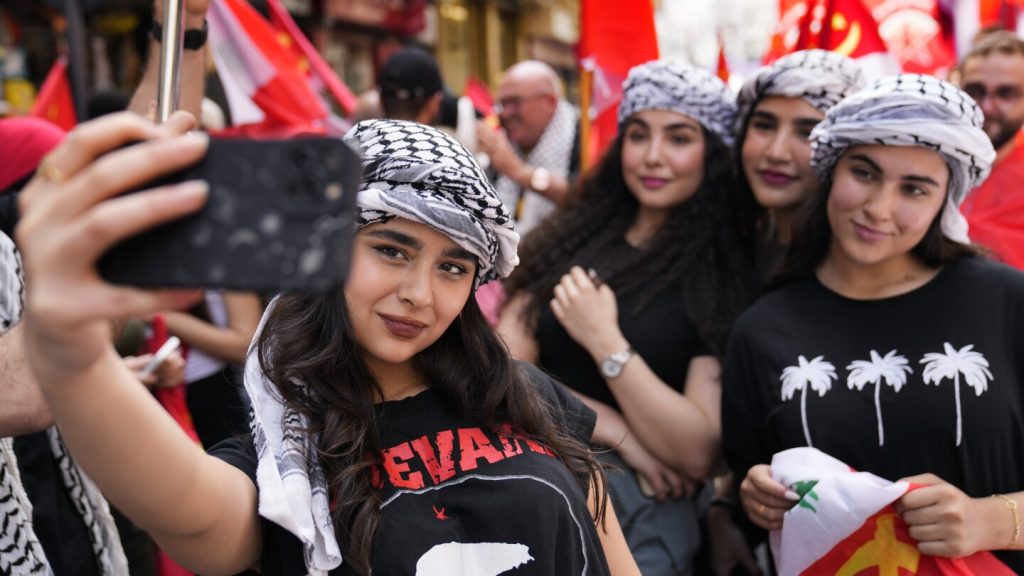Workers and activists across the globe marked May Day with peaceful protests, highlighting rising prices and the need for greater labor rights. In Istanbul, police used tear gas and rubber bullets to disperse protesters attempting to reach the main Taksim square, where a ban on demonstrations is in place due to security concerns. Pro-Palestinian sentiments were evident, with a small group laying a wreath at a monument to victims of a deadly attack during a May Day celebration in 1977. May Day, observed on May 1, is a day to celebrate workers’ rights and raise economic and political demands.
In Paris, thousands of protesters marched for better pay and working conditions, leading to instances of scattered violence and the hospitalization of 12 police officers after a homemade explosive was set off. France’s unions have warned of a strike during the upcoming Summer Games if the government does not adequately compensate those working during the holidays. In Greece, pro-Palestinian protesters joined May Day rallies, showing solidarity with Gaza, while similar scenes were seen in other countries, including the United States.
In Brazil, President Luiz Inácio Lula da Silva ratified a law extending income tax exemptions to low-income earners, emphasizing support for workers. In El Salvador, activists demanded “justice and freedom” for lower-class workers detained under the government’s anti-gang efforts. Unions in Nigeria and South Africa criticized government measures to ease living costs and called for salary increases. Pro-Palestinian sentiments were also visible in South Africa and Kenya during May Day events.
Tens of thousands of Sri Lankans marched through the capital amid an economic crisis, voicing discontent over price increases and taxes. In South Korea, protesters condemned what they called anti-labor policies by President Yoon Suk Yeol’s government, while Japan saw demands for salary increases to combat rising costs. Indonesian workers rallied against labor laws and outsourcing rules, advocating for better conditions for migrant workers. In the Philippines, activists marched for wage increases and job security, facing resistance from riot police near the presidential palace.
Overall, May Day events showcased global solidarity for workers’ rights and economic grievances. From Istanbul to Tokyo, activists and unions came together to demand fair treatment, higher wages, and improved working conditions. The day’s demonstrations highlighted the ongoing struggles faced by workers in various countries and the collective effort to bring about change in labor practices and policies.Pro-Palestinian sentiments were also evident throughout the protests, with groups showing support for those affected by conflicts in Gaza and advocating for justice and freedom for marginalized communities. The calls for solidarity and action underscored the importance of global movements in addressing economic disparities and promoting social justice on International Labor Day.


